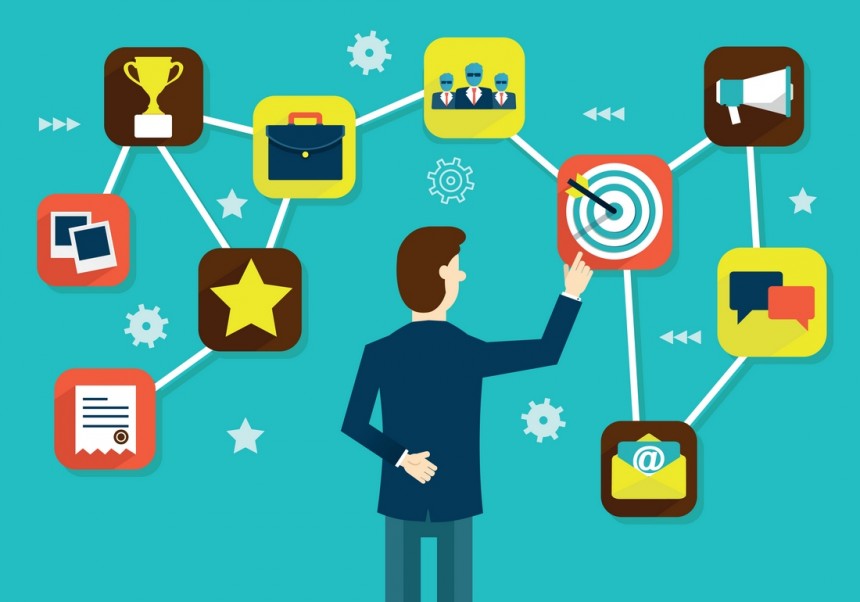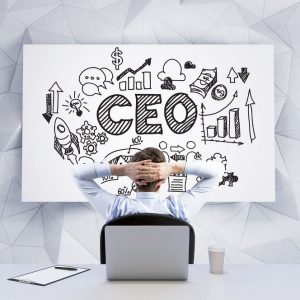Interview is an indispensable stage in the recruitment process. In fact, many Chief Human Resources was too hasty interview format of questions and answers that do not facilitate the candidates talking up their interest for the position as well as the short term vision long term in the future.
To be able to bring about the most suitable candidate with the company, Chief Human Resources or recruiters need a professional interview process as well as the skills interview question really smart.
Paul Falcone (is vice president of HR at the Motion Picture & Television Fund) said that in addition to the technical questions, IQ or the traditional interview the most expert HR field today all agree that finding suitable candidates more effective when based on additional criteria for emotional intelligence (EI).
Emotional intelligence (EI) is typically described as someone's ability to read other people's signals and respond appropriately to them, as well as recognize and understand their own emotions so they can influence the emotions of others. Interlocked with EI in the interview will reduce stress, increase interest as well as assist Chief Human Resources to easily find out the candidate apart from professional knowledge and personality.

With this intelligent interview, a candidate will have enough opportunities to impress recruiters and other employers will be more candidates. It's a triple win—for companies, hiring managers and candidates alike.
Openness
How do you build enough trust into the interviewing process to create an environment in which candidates feel comfortable making themselves "vulnerable" and open (in a positive sense)?
Look first to your icebreaker and opening-question strategies to put candidates at ease and build rapport?
- Tell me about your job search up to now?
- Your motivation for applying for this position?
- Please tell me more about your experiences, it can help you apply for the job?
- Tell why we should select you?
- Let us know for 3 years or 5 years you will become like?
- Please let us know if your personal thoughts are sitting in this position and I was you?
- If not interviewed in the Office you want to interview any other places?
- What's one thing about your career at this point that's guaranteed to make you most proud of?
Phil Blair (executive officer at Manpower San Diego) says: “What these questions all have in common is a willingness to get to know the person on a more individual and personal level. And that's the key to building immediate rapport and trust at the onset of every interview”.
Does this add too much time to the length of each interview?
Possibly, but asking these goodwill questions upfront may obviate the need for more traditional yet hackneyed questions. Phil Blair that those are bad questions but it does not brings the best results, it also requires the ability to communicate the particular HR managers or HR workers in general. He said: "We can see that these questions bring high benefits will help to exploit more information and more feasible to help recruitment easily make accurate decisions when seeking candidates excellent".

Smart interview
When Chief Human Resources have established solid relationships using these questions continue to try implementing some of the queries below as your interview continues and closes:
- According to your understanding, why this location is meaningful to you in the present moment?
- If you are employed in this position, the first thing you do is when take the job?
- Based on what your most respected critic would say, what's the greatest asset you will bring to our company?
- What areas for career development and personal improvement are you focusing on at this point?
- If you have better chances in the future, you consider maintaining the current company?
Eve Nasby (employment expert and CEO at InfusedWork in San Diego) said: “Anytime you can link professional development goals to an individual's career history and performance record, you're elevating the interviewing and selection process. That's because you're making it safe for candidates to think out loud and share their inner thoughts and concerns with you, which automatically places you into the role of career mentor and coach—right where you want to be in terms of getting any relationship off to a good start."
Significantly, you'll actually be moving the professional development paradigm to the pre-employment side of the equation. Nasby recommends: “Most companies don't do a good job discussing performance delivery and goal setting during the annual review. Need a detailed plan, set goals and a clear assessment of the process of working”.
The blending of emotional intelligence and expertise as well as professional interest are the components needed to build effective interviews and more natural.
Furthermore, establishing a sustainable relationship between the first time Chief Human Resources also helps shorten training time for new people. They will be easy to integrate, share and comfort of current employees will quickly understand them better, since workflow going smoothly, go into orbit faster operation.
Source Shrm.org





